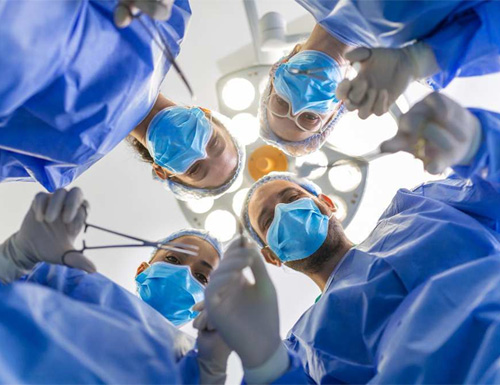
Best Back & Neck Pain Treatment in Mumbai
Are you suffering from persistent back pain or neck pain? Dr. Siddharth Shah offers world-class spine care and personalized treatment plans in Mumbai. If you’re searching for the Best Back & Neck Pain Treatment in Mumbai, you’ve come to the right place.
About Dr. Siddharth Shah & iSpine Clinic
Dr. Siddharth Shah is a distinguished Consultant Spine Surgeon specializing in both adult and pediatric spine care. He holds extensive training and experience in minimally invasive spine surgery, endoscopic “keyhole” procedures, and non‑surgical spine treatments. Having trained in leading international centers (UK, New York, Hong Kong, Munich), Dr. Shah brings a global perspective to spine care in Mumbai.
At his iSpine Clinic (Girgaon) and through outreach in Juhu, Dr. Shah offers comprehensive care for spinal disorders — from conservative management to advanced surgical interventions. He is known for combining clinical compassion with technical prowess, aiming to deliver the Best Back & Neck Pain Treatment in Mumbai
Common Conditions Causing Back & Neck Pain
Back pain and neck pain may arise from a variety of conditions. Dr. Shah's practice addresses disorders such as:
- Slipped disc / disc prolapse (lumbar, cervical)
- Sciatica & radiculopathy
- Spinal stenosis (lumbar & cervical)
- Cervical spondylosis & degenerative disc disease
- Spinal deformities & scoliosis
- Spine fractures, infections, tumors
- Osteoporosis-related spine issues
Why Choose the Best Back & Neck Pain Treatment in Mumbai with Dr. Shah?
When seeking the Best Back & Neck Pain Treatment in Mumbai, several factors distinguish Dr. Shah’s practice:
- Patient-centric care: Dr. Shah emphasizes educating patients about their condition and involving them in decision‑making.
- Minimally invasive and endoscopic techniques: smaller incisions, faster recovery, less pain.
- Strong non-surgical focus: Dr. Shah offers advanced conservative treatments when possible.
- International training & advanced technology: global exposure ensures modern protocols in Mumbai.
- Comprehensive follow-up & rehabilitation: holistic recovery beyond surgery.
Approach & Treatment Options for Back & Neck Pain
Dr. Shah’s philosophy is to treat the root cause of symptoms — not just mask them. The approach typically involves:
- Detailed evaluation & diagnosis: Clinical history, examination, imaging (MRI, CT, X-rays).
- Conservative / non‑surgical management: physical therapy, pain management, lifestyle modifications.
- Minimally invasive and endoscopic surgery: when conservative measures are insufficient.
- Rehabilitation & recovery: guided physiotherapy, ergonomic education, follow-up.
Non‑Surgical & Conservative Therapies
Many patients with back pain or neck pain can be managed non-surgically. Dr. Shah emphasizes:
- Advanced physiotherapy modalities
- Pain management interventions (nerve blocks, injections)
- Lifestyle & ergonomic modifications (posture, exercise, weight control)
- Bracing, belts & supportive devices
- Neuropathic medications & symptomatic relief
Minimally Invasive & Surgical Modalities
When surgery is needed, Dr. Shah offers state-of-the-art options designed to minimize tissue trauma and speed recovery:
| Procedure / Technique | Scope & Indications | Benefits / Recovery |
|---|---|---|
| Endoscopic Discectomy (Lumbar/Cervical) | Herniated disc removal with minimal tissue disruption | Faster recovery, minimal scarring |
| Microscopic Decompression | Spinal stenosis, nerve compression relief | Precise, targeted, less tissue damage |
| Minimally Invasive Spinal Fusion (e.g., TLIF) | Instability, spondylolisthesis, collapse | Stabilizes spine with minimal exposure |
| Anterior Cervical Discectomy & Fusion (ACDF) | Severe cervical disc disease, nerve compression | Restores alignment, reduces **neck pain** |
| Disc Replacement / Artificial Disc | Younger patients with single-level disease | Preserves motion, avoids fusion |
| Vertebroplasty / Kyphoplasty | Compression fractures (e.g. in osteoporosis) | Pain relief, restoration of height |
| Spine Tumor / Infection Surgery | Removal or biopsy, stabilization | Precise excision, reconstruction |
Step-by-Step Treatment Journey
Here’s a simplified path patients typically follow when choosing the Best Back & Neck Pain Treatment in Mumbai with Dr. Shah:
- Initial consultation & detailed clinical assessment
- Diagnostic imaging & evaluation
- Formulation of a customized treatment plan (conservative or surgical)
- Treatment execution (therapy, minimally invasive procedure, surgery)
- Post-treatment rehabilitation & follow-up care
- Long-term maintenance & prevention strategies
Frequently Asked Questions (FAQ)

